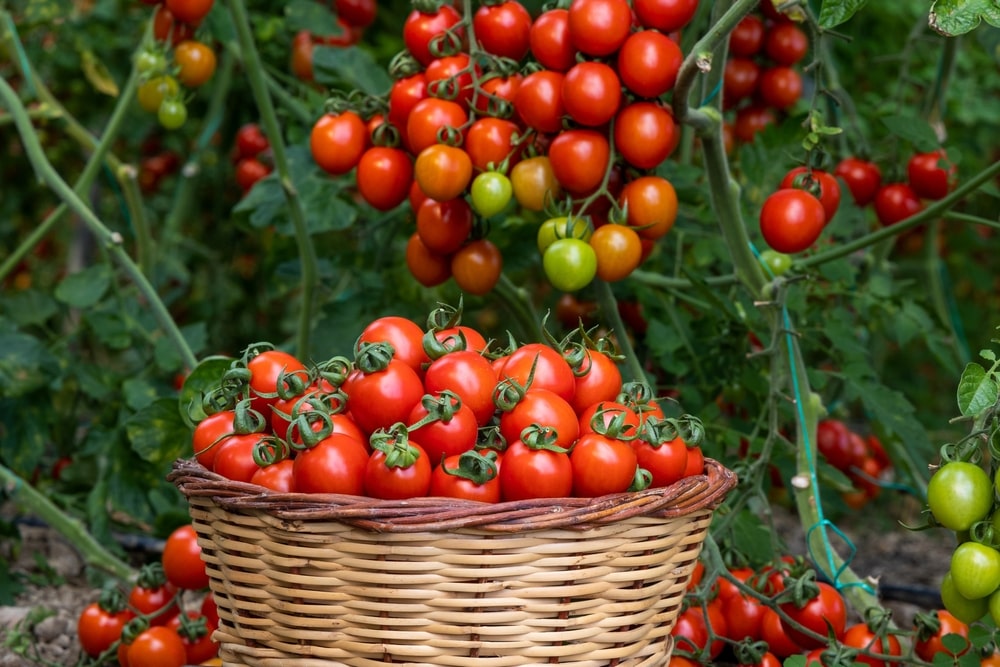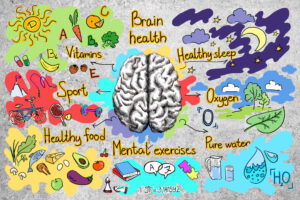When you want to feel young, the best thing you can do is to keep yourself healthy. It doesn’t matter that you are retired; you can still have the heart of a 20-year-old! But for this, you should try to eat more of the following foods for heart health.
What you eat can determine how you feel, and this is why nutrition is so important, even if it is something overlooked by many at the beginning of their health journey. People tend to focus on sports and physical activity, but they forget about their diet.
Read on and learn how to get on the right track with these foods for heart health. Reduce the risk of cardiovascular complications!

1. Eggs
If you want to have a healthy diet, you should know that eggs are one of the best foods for heart health. They are recommended by both the American Heart Association (AHA) and the Dietary Guidelines.
If you know that you don’t have any major problems with your cholesterol, you can eat up to two eggs per day for a healthy diet.
According to research, eating one egg per day may reduce the likelihood of heart disease and stroke. Other research reveals that eggs have antioxidant capabilities that may help reduce the risk of heart disease.
So, as long as you’ve discussed this with your doctor, eating two eggs every day can help you maintain a healthy heart.
2. Walnuts
They have copper, magnesium, and manganese and are also an amazing source of fiber. This is why we love walnuts, but a thing that not many know is that they are also some of the best foods for heart health.
According to research, including a few portions of walnuts in your daily diet can help prevent heart disease. The evidence shows that there are several species of tree nuts that have this ability to prevent cardiovascular diseases, and walnuts are among them.
But how can walnuts help your heart? Well, they are able to decrease the LDL, also known as bad cholesterol, and this means you will have normal blood pressure and, in the end, a healthier heart.
3. Berries
One of the amazing foods for heart health is berries. Any berry—blackberries, strawberries, raspberries, or blueberries—is full of nutrients that can help you stay in good shape for longer.
Berries are additionally high in antioxidants, such as anthocyanins, that help prevent inflammation and oxidative stress, both of which can lead to an increased risk of heart disease. A higher anthocyanin consumption may lower the likelihood of cardiovascular disease, especially heart attacks and hypertension.
If you eat blueberries daily, you will help the cells that form the lining of your blood vessels improve their function, and in the end, you will have better blood pressure and reduce the risk of blood clotting.
Even more, berries are effective at reducing oxidative stress and, also, inflammation, which improves vascular function. So, next time you want a snack, you can try some berries.
4. Legumes
Legumes are another great option for heart health. If you want to focus on having a young and healthy heart, try to introduce plant-based protein into your diet. And the best source of plant-based protein is legumes.
Chickpeas, lentils, and beans are all high in protein and fiber. Try to eat more of them, and in this way, you will be able to avoid animal-based proteins.
The American Heart Association advises us to eat more plant-based protein and try to replace animal-based protein as much as possible, but there is one thing you should be careful about.
Many meat substitutes on the shelves are still heavily processed and may have a higher percentage of added sugar and chemicals. This is yet another reason why legumes are a much safer and more nutritious option.
5. Chicken
Of all the meats you can choose, this is the best one and also one of the foods for heart health. Even if the American Heart Association recommends reducing the sources of animal protein, if you are still craving some meat, you can consume chicken in moderation.
Poultry is a good and healthier choice because it is not high in fat. This means this food is much safer than other types of food when we talk about your cardiovascular health.
But keep in mind that there is still one type of meat you should always avoid at all costs when we talk about chicken or anything else. Do your best and stay away from processed meats. Deli meat, salami, and bacon are full of salt and added preservatives.
Replacing processed meats with small amounts of unprocessed chicken can help reduce the likelihood of heart disease.
6. Whole grains
Whole wheat, barley, brown rice, quinoa, or rye—all help reduce systolic blood pressure and cholesterol, which leads to a lower risk of heart disease. Numerous studies found that eating at least three portions of whole grains per day was linked to a 22% reduced likelihood of heart disease.
If you want to get fiber and also keep your heart healthy, you can choose this amazing whole grain, which is oats. This is one of the best foods for heart health because it is rich in soluble fiber, which is linked to an unmatched ability to reduce bad cholesterol.
The FDA also issued a health claim that shows the connection between soluble fiber and diets that are high in oats, fruits, and vegetables. All of these have enough soluble fiber, and they help you have a lower risk of developing coronary heart disease.
7. Cruciferous vegetables
Vegetables like Brussels sprouts and broccoli are known to be some of the best foods for heart health. They are great at lowering the risk of developing cardiovascular complications and do a good job of strengthening your heart.
Broccoli plays a big part in minimizing the risk of stroke and heart attack because it is rich in selenium and also contains sulforaphane, which is a powerful antioxidant.
Brussels sprouts are also high in heart-healthy nutrients. According to research, cruciferous vegetables such as Brussels sprouts could contribute to preventing blocked arteries, which are a leading cause of strokes and cardiac events. Vitamins E, K, and C, lots of fiber, and glucosinolates, which are sulfur compounds with antioxidant and anti-inflammatory properties, all help the cells of your heart remain young and also lower the bad cholesterol.

8. Tomatoes
Tomatoes are the favorites of many people, and besides being so popular, tomatoes are among the greatest foods for heart health. These red fruits, which many of us believe are vegetables, are incredibly nutritious and contain some substances that are essential for a healthy heart: folate, potassium, beta-carotene, vitamin C, lycopene, vitamin E, and flavonoids.
These antioxidant nutrients are very powerful and can reduce the levels of LDL cholesterol, lower blood pressure, and also reduce homocysteine, which measures inflammation and is an indicator of heart disease. Another thing they help with is that these antioxidants can help the cells move more freely by stopping them from striking one another, which keeps a constant flow of blood.
A good fact you should be aware of is that beta-carotene and lycopene become more potent once they are cooked. This means you should not be afraid to add tomatoes to cooked meals. We know that you might prefer them fresh in salads or burritos, but also adding them to stews, sauces, or chili is an amazing idea.
If you need recipients to store your food, these glass containers are a great choice: JoyJolt JoyFul 24pc (12 Airtight, Freezer-Safe Food Storage Containers and 12 Lids)
You should also read: Post-Retirement Depression: 8 Healthy Ways to Regain Your Happiness



















